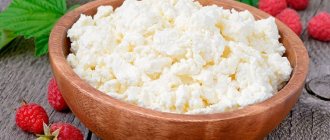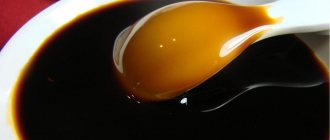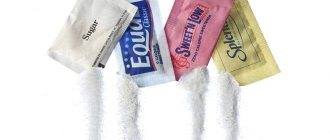Sweeteners are becoming very popular. Avoidance of beet and cane sugar is promoted in the media, causing people to spend large sums on expensive supplements. People first started talking about a sweetener during the First World War, when natural products were in short supply. A little later, it began to be used by those who wanted to maintain their own weight and eat right.
The sugar substitute was an accidental invention of a Russian chemist. During lunch, Fahlberg noticed the sweet taste of the bread. However, it differed among different varieties. It turned out that it was not the flour product that was sweet, but the chemist’s fingers. This is how sulfamine benzoic acid was identified. A little later, a chemist synthesized saccharin from it.
The benefits of natural sweeteners
There are practically no contraindications to their use. Such substances can be consumed by people with diabetes. They contain few calories, so can be used for those who want to maintain their weight.
The most popular are:
- fructose;
- sorbitol;
- xylitol;
- stevia.
Fructose is allowed for diabetics: due to its high sweetness it allows you to reduce sugar consumption (but it is also high in calories). Sorbitol is found in mountain ash and apricots: with its help you can improve the functioning of the gastrointestinal tract and retain beneficial substances in the body. Xylitol improves the condition of tooth enamel and speeds up metabolism. Stevia is a natural product that has no energy value and does not affect glucose levels. Due to their very sweet taste, they can satisfy the needs of those with a sweet tooth.
Xylitol is a natural sweetener extracted from corn. Contains 40% fewer calories than regular sugar.
Today, natural sugar substitutes are also actively promoted. One of their representatives is yacon syrup. The roots of the plant have a sweet taste. The main part of carbohydrates consists of inulin and oligosaccharides. The syrup has a low glycemic index and does not increase blood sugar levels. The carbohydrates contained in it are slowly absorbed and serve as food for beneficial bacteria.
Agave syrup is popular in America. It is 90% fructose. It is made from fleshy leaves, from which sweet juice is extracted.
Classification of sweeteners
We have already mentioned the main classification criterion - natural or synthesized origin. Doctors are unanimous in their opinion - it is advisable to use products from the first group. They are obtained by extraction of plant, fruit, and berry raw materials. Other classification criteria:
- level of sweetness in relation to sugar - sweeteners can be intense (in which case very little is required) or with a less pronounced sweet taste;
- degree of participation in metabolic processes - first of all, we are talking about the effect on glucose levels, it is more pronounced in carbohydrate sweeteners;
- calorie level and glycemic index - it is important for patients with diabetes and adherents of a healthy diet;
- reaction to contact with different environments - solubility, preservation of properties during heat treatment, etc.
Harm of natural sweeteners
Most of them contain a lot of fructose. It has been proven that in large quantities it slows down the most important processes in the brain and negatively affects memory and information analysis.
Some types of sweeteners provoke cardiovascular diseases and lead to the accumulation of fat. When sweets enter the body, a signal is sent to the brain that it needs to be ready for a portion of fructose. A reaction begins in the liver and appetite develops. In addition, almost all of the above types can lead to gastrointestinal disorders at high doses.
Nutritionists note that large amounts of fructose lead to toxic hepatitis. Its complications include cirrhosis, carcinoma, and liver failure. Some sweeteners, such as xylitol, cause allergic reactions.
Types of sweeteners
The main classification can be made according to the method of origin. So, sweeteners can be:
- artificial , that is, made from chemicals and compounds;
- natural – from substances of natural origin.
The main difference between these two categories is their energy value. Artificial sweeteners have virtually zero calories, while natural sweeteners not only have high nutritional value, but are also slowly eliminated from the body. In terms of sweetness, “chemical” sweeteners also have an advantage over natural ones. Due to this property, they can be used in minimal doses.
The benefits of artificial sweeteners
The positive properties include a minimal amount of calories. This type is recommended for consumption by people who are on a diet but cannot give up sweets. Available in convenient tablet or dragee form. One element is enough to make a cup of water sweet.
The only safe sugar substitutes are stevia (this is a natural product) and sucralose, which is 500 times sweeter than sugar and has no calorie content. It is often used by athletes and added to diet. But sucralose has a drawback - it is expensive.
What is a sweetener?
A sweetener is a natural or artificial sweetener that is a chemical compound without the addition of simple carbohydrates. For the first time such a product appeared on the market in 1979 - it was saccharin, however, it was later recognized as a carcinogen. Today's market offers a wide range, but the properties of all substitutes presented are the same.
Sweetener gives foods and drinks a sweet taste. Moreover, they can be either natural or artificial. Undoubtedly, sweeteners are a real panacea for those who absolutely cannot consume sugar, and for those who have decided to reduce the amount of sweets they consume.
Harm of artificial substitutes
They do much more harm than good. Aspartame, for example, is hundreds of times sweeter than sugar, and is one of the most popular. Recent studies have proven the toxic properties of the substance. A long reception can become a provocateur:
- headaches;
- allergies;
- depression;
- liver pathologies.
Taking the drug by patients suffering from excess body weight can lead to the opposite effect due to an increase in hunger.
Saccharin is added to many industrially processed foods. Combined with sugar, it causes the rapid development of hyperglycemia. When used more than 5 mg per kilogram of weight, it has a pathogenic effect on the body. Some scientists are inclined to assume that saccharin is a prerequisite for the development of cancer. WHO says that this theory is not proven.
Disadvantages include:
- metallic taste;
- presence of carcinogens;
- the ability to cause exacerbations of gallstone disease.
If you can’t give up saccharin, you should consume it after carbohydrate foods. This reduces the risk of harm to the body.
The latest popular artificial sweetener is cyclamate. This is a very toxic substance and is prohibited for children and pregnant women. Causes complications in patients suffering from diabetes. Increasing the dosage and prolonged use of the substance causes the development of cancer.
Why are sweeteners harmful?
September 22, 2016
Almost all people who want to lose weight exclude sugar from their diet. This happens because many diets eliminate sugar from the diet. But drinking coffee and tea without sugar is completely unusual for most of us. On the shelves of modern stores there are jars with various drugs, products and dietary supplements that can replace sugar. They are both natural and artificial. All of them are originally intended for people who have diabetes. Now you can see how people on a diet buy Coca Cola Light, instead of regular chewing gum, which has the inscription “Sugar Free”, citing the fact that it contains less sugar. However, sweeteners are not suitable for everyone and have the same calorie content as sugar itself. In this article we will look at the types of sugar substitutes and find out whether they are healthy or harmful? The first type of such substitutes is natural. These sweeteners include fructose, xylitol and sorbitol. The energy value of these substances is one and a half to two times less than that of sugar. Fructose is made from berries and fruits, and it is also present in honey. Outwardly very similar to sugar, but twice as sweet. Accordingly, the calorie content is also higher than that of sugar. It is not suitable for a diet due to its high calorie content, however, fructose has no other disadvantages. Xylitol is made from rowan berries, and sorbitol is made from corn cobs and cotton seeds. Their main disadvantages: in case of overdose, they cause diarrhea, gastric upsets and increase the risk of developing cholecystitis. They are not suitable for the diet in the same way as fructose due to their high calorie content. Artificial sweeteners include saccharin, cyclamate, acesulfame and sucralose. These substitutes are allowed in our country and are considered the most popular. Many of them may not be absorbed by the body. There are other dangers that come from sweeteners. One of the first sugar substitutes was saccharin, which is about three hundred times sweeter than sugar. It increases the risk of cancer, affects the exacerbation of cholelithiasis and is strictly contraindicated in pregnant women. Today it is banned in the United States of America, Canada and the European Union. Acesulfame is not as sweet as saccharin, but is only two hundred times sweeter than sugar. It is poorly soluble and contains methyl alcohol. It is found in ice cream, candy and various sweet sodas. It has a negative effect on the cardiovascular and nervous systems and is addictive. Its use is prohibited in the United States of America. Cyclamate is forty times sweeter than sugar, but consuming it is also dangerous. Under no circumstances should it be used by pregnant women and children; moreover, there is a suspicion that it provokes kidney failure. Not everyone will be able to lose weight by consuming substitutes instead of sugar. Scientists have proven that sweeteners have the opposite effect due to their calorie content. The question arises: “How can we replace sugar, if not with these sweeteners?” Currently, scientists have developed various sweeteners. For example, stevioside, which is made from stevia, or, as it is also called, honey grass. Also, quite recently, specialists were able to obtain a substance from citrus peels - cirose, which is almost two thousand times sweeter than sugar and is absolutely safe. In any case, before switching from sugar to any substitutes and sweeteners, consult your doctor. Together you will discuss the options that suit your body, because risking your health in order to lose a couple of kilos is very, very unwise!
Tags:
- Sweeteners
To leave a comment you must be an authorized user
The benefits and harms of sweeteners when losing weight
Many people switch to sweeteners when losing weight. However, artificial species can have the opposite effect. Modern types contain a large number of calories, this fact must be taken into account when choosing.
None of the known sugar substitutes promote significant weight loss. But such substances help make the diet easier and keep a diabetic patient from relapse.
In Germany in 1988, an experiment was conducted: subjects were given a glass of water with a dissolved sweetener to drink on an empty stomach. Sugar concentration was measured before and after drinking water. Scientists have found that blood sugar levels have decreased, which confirms the effect of substances on the functioning of the pancreas, causing an acceleration of insulin synthesis.
Things get even worse if artificial or natural substances are added to the porridge to replace sugar. For example, oatmeal contains complex carbohydrates, which do not slow down your weight loss process. But when it is combined with a sweetener, the body reacts to the second substance. Complex carbohydrates are replaced with simple ones. Less harm will occur if you use substitutes for tea or other drinks.
One feature of such products is the absence of glucose. Taste buds recognize sweetness, but the cells do not receive the long-awaited energy. This leads to a sharp disruption in metabolism. The next time glucose is supplied, the body will not “believe” the sweet taste and will convert the substance into fat, which will lead to weight gain.
Sweeteners during weight loss
Sweeteners can be useful for those who are accustomed to regular sweet soda and are really trying to lose weight, as this is one of the easiest ways to cut back on their daily diet by at least 200-300 kcal.9 An experiment in which people decided to lose weight by changing just one habit : Stop drinking soda has shown equal effectiveness of regular water and diet drinks for weight loss.10
Another study on diet soda-losing diet soda dieters found that the group assigned to drink plain water instead of their usual soda lost less weight.11 This result can be explained by the fact that the experiment consisted of an intensive weight-loss program, and since Weight loss is a physically and emotionally demanding process, so the more habits a person needs to change, the more difficult the result is.
In general, scientific opinions on sweeteners vary. Some believe that sweeteners can be an effective way to combat obesity and excessive sugar consumption11,12; others believe that sweeteners only increase cravings for sweets1 and are concerned about the potential negative effects on long-term health.13
Harm and benefits of sweeteners for diabetes
Failure of the thyroid gland occurs in type 1 and type 2 diabetes. An increase in blood sugar concentration leads to the appearance of various diseases and pathologies. To avoid this, it is recommended to follow a certain diet. It excludes the consumption of foods that provoke glucose surges.
Sweeteners are used to provide a variety of taste sensations. Preference should be given to natural types. They:
- safe;
- provide ideal taste to products;
- have a mild effect on carbohydrate metabolism.
Saccharin is the first sugar substitute for diabetics. Since it has a metallic taste, it is combined with cyclamate. However, this combination leads to an increase in blood glucose levels.
People with type 1 and type 2 diabetes are allowed fructose, but the daily dosage is no more than 50 g. Stevia is more beneficial because it reduces sugar levels in the body and normalizes metabolic processes.
In the absence of concomitant diseases, the following are allowed for use:
- maltose;
- lactose;
- thaumatin;
- monellin.
In some cases, sweeteners cannot be used for diabetes. The restriction applies if there are liver and kidney diseases, gastrointestinal problems, allergic manifestations, or a predisposition to cancer.
Sweeteners and sweeteners
There are two categories of sugar substitutes. They all taste sweet to varying degrees, but differ in chemical nature.
Sweeteners
These substances are carbohydrates or fairly close to them. They are comparable in calorie content to sugar, as well as in taste, but are absorbed much more slowly, causing less harm to health.
Sweeteners
From a chemical point of view, they belong to other types of substances that differ from carbohydrates in molecular structure. Their calorie content is very low, and their sweetness is hundreds and even thousands of times higher than sugar. This means that the substance tastes like sugar in a lower concentration. However, this may vary depending on the temperature of the food, and some sweeteners are sweeter when combined with others.
It should be noted that both terms are not always absolute in nature and are sometimes used as synonyms. Sweet supplements are produced in the form of powders, tablets and liquids. In the food industry, powders are mainly used, liquids are used when preparing food at home, and sweetener tablets are conveniently added to coffee or tea.
Sweeteners during pregnancy
As in the above cases, during pregnancy you should completely avoid artificial sweeteners. It is better to focus on sucrose, honey, fructose, dexatrose, and corn sweetener. These substances are prohibited if you have diabetes mellitus in pregnancy.
Acesulfame potassium can be taken in small quantities. Some doctors also allow Aspartame. It can be seen in syrups, jelly desserts and yoghurts. The substance is also safe during breastfeeding. Sucralose is also not prohibited. It is used instead of regular table sugar.
Cyclamate and saccharin will harm mother and baby. The first is prohibited for use due to the possibility of causing cancer, the second penetrates the placental barrier and causes irreparable harm to the fetus.
There are many questions regarding stevia. Despite its natural origin, it has not received approval from the medical community. Therefore, it is not recommended for use during pregnancy.
Effect on the body
Following modern trends, many are trying to remove sugar from their diet. Sometimes this is done for health reasons or a doctor's recommendation. But it is worth understanding that such a decision entails consequences, both positive and negative.
The positive ones include:
- Zero calories.
- Reducing the development of dental diseases.
- Cleansing the body.
- Fighting sugar addiction.
- Restoring the balance of intestinal microflora.
- Improving bone health and density.
- Preventing spikes in blood glucose.
- Prevention of hyperglycemia.
A sweetener, if consumed in reasonable quantities, is safe for health and figure. Moreover, the sweetener, unlike sugar, does not worsen the condition of tooth enamel and does not provoke the development of caries. But it is important to study the daily dose and stick to it. Otherwise, you may encounter:
- Obesity . Yes, even despite the zero calorie content, exceeding the permissible daily dose threatens the appearance of extra pounds. The point is that although the sweetener is not absorbed by the human body, it affects the microflora in the intestines.
- Poisoning . To a greater extent, this consequence occurs from artificial sweeteners. Since they are not eliminated from the body naturally, excessive consumption of sweeteners can cause poisoning.
- Other complications include pathologies of the heart and blood vessels, frequent headaches, kidney dysfunction, flatulence, gastrointestinal disorders and the formation of stones.
Therefore, it is important to take sweetener carefully and wisely.
How to choose a sweetener so as not to cause harm to the body?
In Russia, the use of sweeteners is not as popular as in other countries. You can buy them in almost any large stores and pharmacies. The easiest way is to find an artificial one. Nutritionists say that it is worth giving preference to the products of those companies that specialize in dietary nutrition.
Many additives allowed in our country are prohibited in Europe and America. Before purchasing, you should study the lists and choose the variety that is considered safe in most countries. You can use as much substitute as indicated on the package.
Thus, it is imperative to replace sugar with an additive if this is prescribed by the attending physician. If you wish, you can choose the appropriate type if you want to give up sweets or lose excess weight through a diet. It is not recommended to replace if you have thyroid or kidney disease without consulting a doctor.
3 dinners for two with free delivery for RUB 1,990.
View menu
Sweeteners and weight
As for the effect of sweeteners on weight, the picture here is not so clear.
Large epidemiological studies3,4,5 showed that people consuming sweeteners were more likely to gain weight. Does this mean that they gained weight from sweeteners? Not really, since epidemiological studies are purely observational and do not establish a cause-and-effect relationship. Simply put, those who took sweeteners may have had weight problems to begin with and were using diet drinks and foods as a way to lose weight. Or was there a “I’ll have two Big Macs and a Diet Coke, please” scenario. It is possible that people were overcompensating for the energy saved by drinking non-caloric drinks.
As usually happens in the scientific world, epidemiological studies set the vector, and scientists began to dig further in this direction through other experiments, and these are the conclusions they came to.
The most harmless natural sweeteners in tablets for diabetics and losing weight
Since the reason that makes you think about replacing the usual granulated sugar or refined sugar with various types of sweeteners is due to the desire to improve your own health, it is quite natural that the quality of the alternative should meet certain standards. This mini-rating, compiled based on real reviews from Ozon, Otzovik and irecommend, will help solve the problem of choice.
Novasweet, stevia
Price – 258 rub. for 350 pcs.
The first thing that is prescribed to diabetics and other patients who, due to various circumstances, cannot consume sugar in their usual form is stevia.
The 100-natural herbal component allows you to preserve the sweetness of drinks and even desserts without giving the slightest side effects.
If you choose products from this manufacturer, then as an additional bonus you can get a complete absence of calories and the most healthy composition without dyes, artificial additives and preservatives.
Advantages and disadvantages
natural composition - only stevia leaf extract, soda and several stabilizers for the binder;
pleasant sweetness with a complete absence of sugar;
zero calories;
high degree of solubility in any drinks - no need to stir anything;
convenient packaging.
there is a slight bitterness and a specific smell;
not the most budget offer.
"I am Stevia"
Price – 295 rub. for 200 pcs.
Unlike the previous position, this adapted stevia tablets have no aftertaste at all, being a completely neutral sweetener of plant origin. In addition to the natural composition, these products have many other serious advantages, starting with the absence of any harmful components, such as GMOs and all kinds of chemicals, and ending with a very convenient release form - quickly dissolving capsules.
It is noteworthy that the manufacturer itself classifies its product as dietary, vegetarian, organic and even halal.
Advantages and disadvantages
An excellent alternative to sugar, it will make the transition to a sugar-free diet almost invisible;
lack of bitterness, acid and specific odor;
High compatibility with various desserts and drinks.
the taste is too neutral;
not enough sweetness;
The dispenser mechanism is very tight, which sometimes has to be pressed several times to get a tablet.
Stevia Novasweet
Stevia is a long-known and most common sugar substitute. It is made from the bush of the same name. Because of its sweet leaves, stevia is called the honey herb.
Novasweet stevia is sold in 200 gram bags. The advantage of this substitute is that it does not contain carbohydrates, which means it is very useful for people who are losing weight. An even more significant advantage is its glycemic index, which is zero. This means that by consuming stevia you do not burden the liver, and it does not release insulin or increase blood sugar levels.
Thanks to the components that make up stevia, the risk of developing malignant tumors of the gastrointestinal tract is reduced, lowers blood pressure, and helps eliminate waste and toxins.
There is also a negative property of stevia - it can cause allergies. Also, this product is not compatible with milk, since lactose and honey grass components together can cause diarrhea.
Since this sugar substitute can lower blood sugar levels and lower blood pressure, you need to be smart about using the product in your diet.
Stevia Novasweet is very suitable for baking and tea. Its sweet taste gives desserts and drinks a pleasant, slightly caramel taste, and the packaging is very economical.
Sweetener MasterShape
MasterShape sweetener is suitable for those who are losing weight wisely. It is a mixture of sugars: erythritol, scuralose and steviosite. This product is several times sweeter than sugar, but it does not cause discomfort in the intestines and is food for beneficial microorganisms living in the intestines. This sweetener contains prebiotics that improve digestion. Since MasterShape is very sweet, 100 grams of such a product can replace 1 kg of sugar, which indicates the cost-effectiveness of the product.
The sweetener does not disintegrate under the influence of high temperatures and does not produce bitterness, which means it can be used as a topping for tea and coffee, or added to baked goods.
Due to its zero calorie content, this sweetener can be consumed by overweight people. Also, due to the fact that the sweetener does not contain calories, the calorie content of baked goods and desserts is reduced.
The manufacturer also thought about ease of use. A MasterShape box contains 90 sachets of sweetener. Therefore, it is very convenient to take it with you. Now it’s not at all difficult to find MasterShape on the shelves of large hypermarkets, and the price of one package is about 150 rubles.
Review of sugar substitutes
There are natural and synthetic sweet food additives, each of them has its own advantages and disadvantages.
Fructose
A natural substance found in fruits. The calorie content is comparable to sugar, but its sweetness is 1.7 times greater, allowing you to significantly reduce the quantity (and, therefore, the calorie content). It also affects tooth enamel, but to a lesser extent than sugar, and the tonic effect is useful during physical activity.
But fructose is not without its drawbacks:
- is broken down only by the liver, creating excess load on this organ;
- can cause irritable bowel syndrome;
- easily stored in fat reserves.
Side effects most often occur with excess fructose. If your diet includes a lot of fruit, you are already getting enough fructose, and there is no need to consume it additionally instead of sugar.
Stevia
The plant, also known as honey grass, is native to South America and Asia. Low calorie content is combined with a high degree of sweetness, has a beneficial effect on digestion, and normalizes blood pressure. Stevia contains potassium, which is essential for the heart.
Stevia produces four sweet-tasting substances:
- stevioside;
- rebaudiosides A and C;
- Dulcoside A.
Stevia has a bitter taste, but is quite popular because of its natural origin and because it can be added to baked goods. It’s common to think that this is a safe sweetener, but you shouldn’t get carried away with it, like others.
Sorbitol
According to its molecular structure, it is not a carbohydrate, but a polyhydric alcohol. The calorie content of the sweetener sorbitol is low, and due to its low glycemic index it is often recommended for diabetics. It occurs naturally in some starch-containing products.
Sorbitol stimulates the production of gastric juice, thereby improving digestion, but it is not recommended to consume more than 15 g per day, otherwise it can cause bloating.
Sucralose
This synthetic product is made from sugar, so the taste is practically no different from it, but the degree of sweetness is 600 times greater than it. Sucralose can withstand heat treatment, but can increase insulin levels.
Aspartame
A very popular synthetic product with minimal calorie content and 200 times sweeter than sugar, but if consumed excessively it causes headaches, insomnia and decreased vision. In experiments on animals, an increased risk of malignant tumors was observed; there is no similar data regarding the effect on humans.
Saccharin
Inferior to other products in almost all respects:
- bitter taste;
- carcinogenicity;
- danger of cholelithiasis.
The only advantage is the low price.
The harm of a sweetener called “Saccharin”, or E 954, clearly outweighs its advantages. It is not recommended to purchase the product.
Erythritol
Low in calories, practically harmless even in large quantities. Almost no different from sugar in taste and appearance, it is often used together with stevia, muffling its bitter taste.
Cyclamate
A very dangerous substance: it leads to kidney failure; when processed in the digestive tract, it forms cyclohexane, which can cause intestinal cancer. Not recommended for use.











